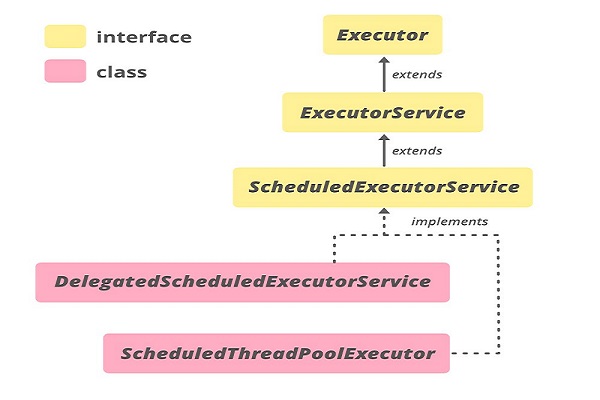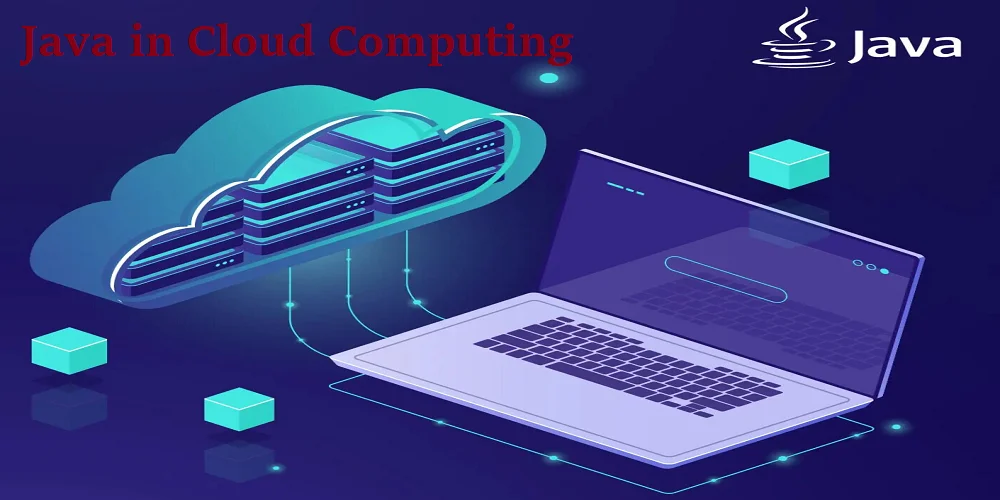Understanding Java ScheduledExecutorService
Java ScheduledExecutorService, which is a thread pool-based API for task scheduling, is a component of java.util.concurrent. It is compatible with fixed-rate, fixed-delay, and delayed execution scheduling. It manages `Runnable` and `Callable` tasks well and provides greater error isolation and resource management than “Timer”. It makes perfect for timed operations, monitoring, and periodic updates.
The flexible ScheduledExecutorService API in Java web development allows you to schedule tasks to run at certain intervals or after a delay. For more precise control over task scheduling, it provides methods like schedule(), scheduleAtFixedRate(), and scheduleWithFixedDelay(). It is a component of the java.util.concurrent package.
READ – Power of Advanced Tools and Technologies for Java Development
Java uses thread pools to improve error isolation and resource management, in contrast to the previous Timer class. It allows for one-time delays or periodic executions with optional result retrieval, supporting both “Runnable” and “Callable” tasks.

With configurable control and cancelation options, ScheduledExecutorService ensures effective, thread-safe task execution, making it perfect for situations like monitoring, periodic updates, or delayed alerts. A strong tool for handling jobs that must be completed either at predetermined intervals or after a certain delay is Java ScheduledExecutorService. It was first included in Java 5 as part of the java.util.concurrent package. It offers a sophisticated substitute for more conventional methods such as manually managing threads for scheduled activities or using “Timer”.
To help you grasp the usefulness of ScheduledExecutorService, this article explores its advantages and real-world applications.
What is ScheduledExecutorService?
A sub-interface of ExecutorService created especially for job scheduling is called ScheduledExecutorService. The Java ScheduledExecutorService enables you to:
- After a fixed delay it schedules a task to run.
- Set up a task to run on a regular basis, either at a set pace or with a certain interval between runs.
- Utilize tools like cancelation and future outcomes to manage and regulate scheduled jobs.
Java Developers choose ScheduledExecutorService over the more antiquated Timer and TimerTask classes because of their flexibility and thread safety.
Advantages of Java ScheduledExecutorService
- Thread Pool Management: ScheduledExecutorService manages tasks using a thread pool, in contrast to Timer. By doing this, problems like thread hunger are avoided.
- Error Handling: ScheduledExecutorService tasks are segregated, so if one task fails, the scheduler as a whole does not stop.
- Flexibility: It enables you to return the outcomes of scheduled actions by supporting both Runnable and Callable.
- Better Periodic Scheduling: Set a fixed rate and set a timetableFine-grained control over the execution of periodic tasks is possible using WithFixedDelay.
- Cancellation Support: The Future object that the scheduling methods produce makes it simple to cancel tasks.
READ – CompletableFuture in Java 8: Benefits and Best Practices for Developers
Example of Java ScheduledExecutorService
1. Scheduling Task with Fixed Delay
This example shows how to set up a task to execute with a 2-second delay.
Runnable monitorTask = () -> {
System.out.println("Checking system resources...");
// Simulated logic for resource monitoring
};
scheduler.scheduleWithFixedDelay(monitorTask, 0, 3, TimeUnit.SECONDS);
2. Scheduling Task with Fixed Rate
In this example, a job is scheduled to begin instantly and run at a predetermined pace of one second.
Runnable processQueueTask = () -> {
System.out.println("Processing message queue...");
// Simulated logic for queue processing
};
scheduler.scheduleAtFixedRate(processQueueTask, 0, 1, TimeUnit.SECONDS);
3. Scheduling a Single Task
This example shows how to set up a single job to execute after a 3-second pause.
Runnable reminderTask = () -> {
System.out.println("Sending reminder notification...");
// Simulated notification logic
};
scheduler.schedule(reminderTask, 5, TimeUnit.SECONDS);
4. Scheduling a Callable Task
In this example, a callable task that yields a result after two seconds is scheduled.
Callable databaseQueryTask = () -> {
// Simulated database query logic
return "Database query result";
};
Future futureResult = scheduler.schedule(databaseQueryTask, 2, TimeUnit.SECONDS);
System.out.println("Result: " + futureResult.get());
5. Handling Task Cancellation
This illustration demonstrates how to end a planned job.
Runnable apiPollingTask = () -> {
System.out.println("Polling API...");
// Simulated API polling logic
};
ScheduledFuture<?> pollingFuture = scheduler.scheduleAtFixedRate(apiPollingTask, 0, 2, TimeUnit.SECONDS);
// Cancel after 10 seconds
scheduler.schedule(() -> {
pollingFuture.cancel(true);
System.out.println("API polling task canceled.");
}, 10, TimeUnit.SECONDS);
Conclusion
A powerful and adaptable solution for schedule task management is Java ScheduledExecutorService. It is a crucial part of contemporary concurrent programming. This is because of its capacity to manage fixed-rate and fixed-delay scheduling as well as features like task cancellation, fault isolation, and thread pooling.
You can efficiently manage and optimize task scheduling in your apps by being aware of its capabilities and adhering to recommended practices. A skilled Java outsourcing company can assist in optimizing your use of ScheduledExecutorService, ensuring smooth, timely task execution for your projects.
Read more:



